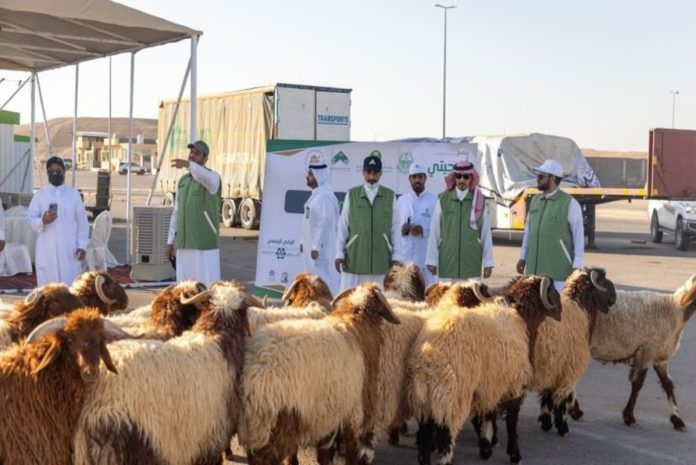How to Cancel ECS Saudi markets offer the service of purchasing sacrifices with free cutting, in addition to their services through the application of savings cards to reserve and receive ready-made sacrifices, in addition to support for livestock breeders by the Ministry of Environment and Agriculture.
Major stores (hypermarkets) in the Kingdom of Saudi Arabia compete to provide offers and services to their customers in the field of purchasing sacrificial animals, as the Saudi markets this year witnessed a noticeable increase in demand for the installment service for purchasing sacrificial animals during the Eid Al-Adha season.
While the sacrificial service varies in different forms, if it is not provided in installments in 4 installments from recognized installment companies, some markets offer additional side services for free. On the other hand, there are services provided by charitable organizations and others specializing in sacrifices and gifts in the Kingdom that offer lower prices and the service is online.
For example, there is a service for purchasing sacrifices with free cutting, and another provides its service through the savings cards application to reserve and receive ready-made sacrifices, with the possibility of donating them to those who deserve it. These services include a variety of sacrifices.
It is considered Ehsan application It is one of the best electronic platforms for booking sacrifices, as the sacrifice can be reserved at a lower price of approximately 720 riyals, and provides convenience in the reservation and payment process. The same thing is provided by the sacrificial animal project in the Kingdom of Saudi Arabia to benefit from the sacrifice Sacrifices.
And it was Livest ock prices For the Eid al-Adha season, various types of sheep, cows and camels range between 950 and 7,000 riyals depending on the type of sacrifice, according to the movement of the central livestock markets.
While the Ministry of Environment and Agriculture announced its support for Saudi livestock breeders and allocated 8 temporary sales points in Riyadh, as part of the early preparations for the blessed Eid al-Adha season, especially for the points of sale and their expansion to cover the needs of the city of Riyadh.
The Ministry explained that it had established seven temporary sites distributed in the city of Riyadh according to a study of size and distance from the fixed markets, which are Al-Aziziyah, Souq Al-Gharb, or Al-Saada, so that every beneficiary will find the services as they are in the fixed sites through the existing points of sale.
These sites are designated for Saudi livestock breeders, as they are supported by the Ministry, and they are the only ones authorized to sell at points of sale. Support includes a rural or rancher program.
Developing markets and slaughterhouses
While working branches Ministry of Environment, Water and Agriculture To develop markets and slaughterhouses, whose activities vary between selling sheep and camels, which enhances the provision of multiple options for consumers and ensures the provision of high-quality services and modern facilities that meet the needs of the market.
The Ministry had announced the availability of large quantities of sacrificial animals in livestock markets in the Riyadh region, two days before the advent of Eid Al-Adha.
The Ministry indicated that the total number of livestock in the markets as of Friday amounted to (115,546) heads, distributed among (99,502) heads of sheep, (14,896) heads of goats, (1,092) heads of camels, and (56) heads of cows.
This came in the daily report on statistics of slaughterhouses and markets in the Riyadh region, issued by the Ministry’s branch in the region, as part of its preparations for this year’s Eid al-Adha season.
The report indicated that the number of yards and barns in the markets of the Riyadh region reached (4,747) yards and barns, in addition to (5,946) jellaba.
The branch’s technical teams also carried out (204) monitoring tours and (979) visits to the region’s markets, which resulted in the destruction of (103) heads of sacrificial animals unfit for human consumption, in addition to (415) kilograms of rotten meat. These campaigns resulted in the registration of (25) warnings and (17) violations, and the filing of one report against those violating the requirements and controls of public health and safety.
The report also indicated that temporary livestock sales points in the city of Riyadh received (15,452) heads of sacrificial animals through (429) receiving pens.




